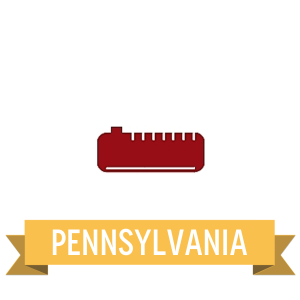
This course has been reviewed and approved by the Connecticut Department of Energy and Environmental Protection (DEEP), the Washington, D.C. Department of Energy & Environment (DOEE), the Florida Department of Environmental Protection (DEP), the Georgia Department of Natural Resources Environmental Protection Division (EPD), the Hawaii Department of Health (DOH), the Office of the Illinois State Fire Marshall, the Mississippi Department of Environmental Quality (DEQ), and the Washington State Department of Ecology.
Successfully completing this training will award a certificate which grants UST Class C operator certification in Connecticut, the District of Columbia, Florida, Georgia, Hawaii, Illinois, Mississippi, and Washington. For all other states, this course should only be used as a reference (and will not award certification). In many states (PA, TX, VA, etc.) the only way to become Class C certified is to be trained by a certified Class A/B operator.
Click here for Maryland Class C certification training.
Click here to view a list of currently offered Class A/B operator certification courses.
Course level: Intermediate
Access duration: 1 year
Applicable states: Connecticut, District of Columbia, Florida, Georgia, Hawaii, Illinois, Mississippi, Washington
This training course covers the following information:
Module 1: Introduction to Class C Operators
- What is a Class C operator
- Class C operator responsibilities
- Class C operator certification
- Operator requirements and training records
Module 2: UST System Components
- What is an underground storage tank
- The primary parts of a pump dispenser
- Spill prevention equipment
- Spill buckets
- Sumps
- Safeguard and emergency shut off devices
- Emergency shut off switches
Module 3: Spill and Overfill Prevention
- Main sources of UST releases
- What makes gasoline dangerous
- How to be prepared for an emergency
- Correct filling practices
Module 4: Emergency Response
- Release monitoring
- What constitutes a suspected release
- Common causes of spills and releases
- What is considered an emergency
- What to do in case of an emergency
- Proper method for using a fire extinguisher
Module 5: Cleanup
- Spill containment materials
- Sorbents
- Basic steps to follow when responding to a petroleum spill
- Washing down spills
- Reminder as to what to do in case of an emergency
Media included:






